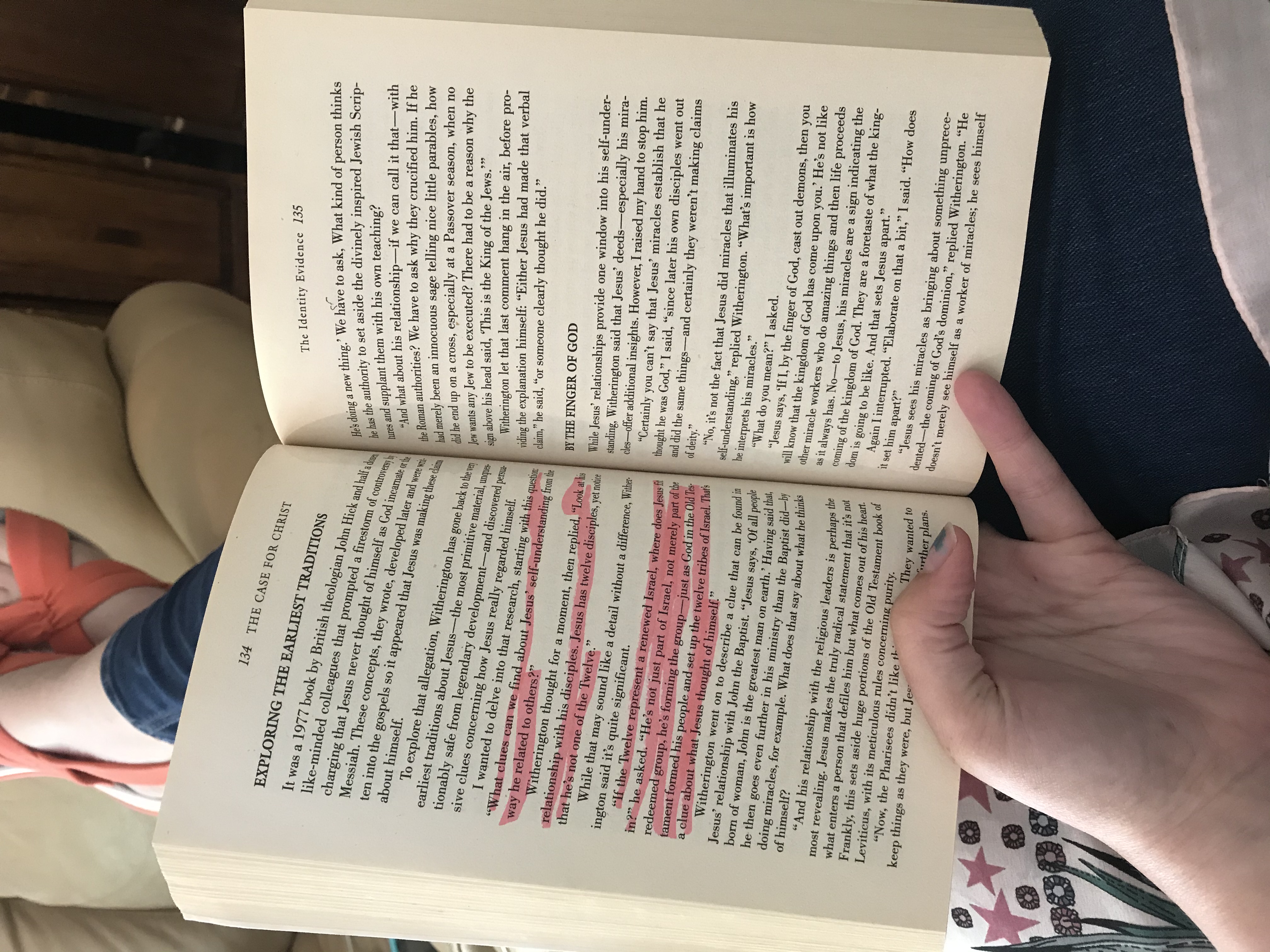This is an example of a weekly email with a reflective question to help you seek God, the source of all good. If these devotions help you, consider signing up to receive emails. A subscriber form appears later.
Do you remember Lee Strobel?

He was the atheist journalist who was compelled to explore the evidence of Jesus’ divinity, whether He truly died on the cross, and what, if any, evidence showed He rose from the dead.
Strobel pressed through interviews with scholars and experts on subjects ranging from the physical injuries that would’ve been sustained by crucifixion victims (as discussed with a medical doctor) to the transformed lives of the disciples, nearly all of whom died for their faith in Jesus.
It was this latter reason – a life transformed, given up joyfully, because of faith in Jesus and the truth of His resurrection – that drove Strobel to begin his investigation. The transformed life was his wife’s.
At first, Strobel was dismayed that his wife had become a Christian. How could a modern-thinking woman be tricked into following a myth? But Strobel couldn’t deny the changes he saw in his wife. Her faith was real. Could Jesus – divine, resurrected Jesus – be real?
The Case for Christ, by Lee Strobel, chronicles his journey from skepticism to faith. The journey was instigated by witnessing a life changed by Jesus.

I pulled out my old copy of The Case for Christ. My favorite evidence for Jesus (although it’s all compelling) is the changed lives of the disciples. I plopped the book on my lap and leafed through the pages, re-reading passages I highlighted years ago.
Then I prayed that God would help me find the exact passage I was looking for. The next moment, the book fell open to page 248. And there it was, the exact paragraph. Strobel wrote:
It had been put to me this way: People will die for their religious beliefs if they sincerely believe they’re true, but people won’t die for their religious beliefs if they know their beliefs are false.
While most people can only have faith that their beliefs are true, the disciples were in a position to know without a doubt whether or not Jesus had risen from the dead. They claimed that they saw him, talked with him, and ate with him. If they weren’t absolutely certain, they wouldn’t have allowed themselves to be tortured to death for proclaiming that the Resurrection had happened. (pp. 247-248)
Lee Strobel, The Case for Christ (pp. 247-248)
(On a side note, skeptics may argue that Mohammad’s followers were willing to die for Islam. Here’s the thing: Mohammad claimed to receive the Koran from an angel who appeared to Mohammad while he was alone in a cave. His followers took his word for it and helped spread Islam by warfare and violence. Mohammad never claimed miracles or provided any evidence of the angel’s appearance; indeed, the Koran records no evidentiary miracles accredited to Mohammad. His followers, perhaps motivated by riches gained through warfare, were content to accept Mohammad’s word without any evidence. That’s a far cry from the 500 people who claimed to personally see the resurrected Jesus.)
Remember the disciples hiding behind locked doors after Jesus’ death?
They were haunted, hunted, discouraged people. Later, two walking on the road to Emmaus would tell the resurrected Jesus, who they did not immediately recognize, “…we were hoping that it was He who was going to redeem Israel.” (Luke 24:21a NKJV)
But six weeks later, these defeated disciples were unrecognizable: Peter stands among the disciples and preaches to a crowd of thousands of people. Peter who denied Jesus to save his own skin, Peter who hid with the disciples for the fear of the Jews, stands now in their midst, filled with the Holy Spirit and declares: “This Jesus God has raised up, of which we are all witnesses.” (Acts 2:32). The Holy Spirit convicts the hearts of many, and 3,000 souls were added to the Kingdom that day.
See, skeptics can try to deny Jesus’ divinity, they can cast doubt on your faith, your belief, they can make you feel silly for taking a stand, they can vilify your brothers and sisters in movies, they can make fun of you in novels, they can suppress you on Facebook, they can pass laws against your values.
But they cannot deny your story.
They cannot deny your transformation.
When you believed in Jesus, when you repented of your sins and accepted His blood sacrifice as payment for your sins, then you became a new person. And every day after that, you’ve grown more distant from your old self. You were once Peter on Friday night, and now you are Peter on Sunday afternoon.

How has knowing Jesus changed you?
When I’m discouraged, I reflect on my past and consider how different I am now than I was before Jesus changed my life. Confession: I used to have a potty mouth. Yes, I did. But Jesus changed me. I can testify how many ways Jesus changed my life, transformed me from glory to glory, and is still working (because I need it).
Your story is powerful because it’s undeniable. Use it. Tell it.
When someone asks you why you believe in Jesus, you might be tempted to grab at theological arguments or archaeological evidence, but consider starting with your story.
Your story can touch a heart, and it’s the heart that reaches for Jesus.
So your reflection question for the week is this: How has knowing Jesus changed you, and what is your story?